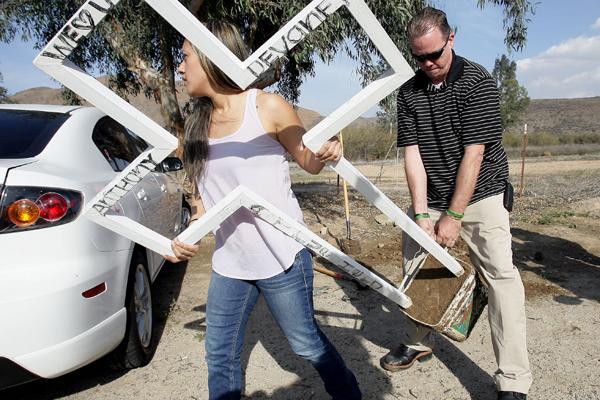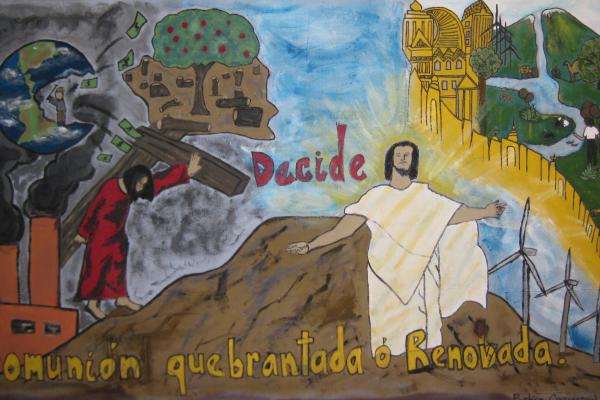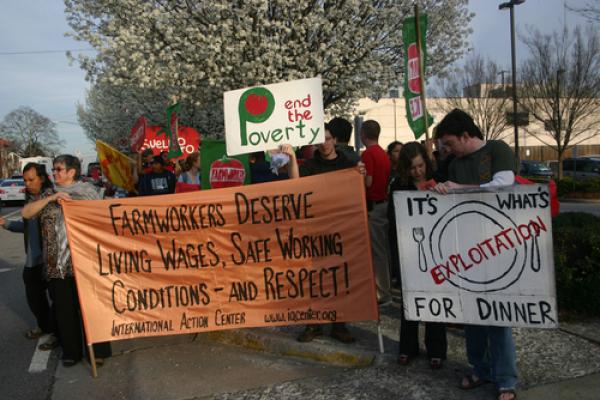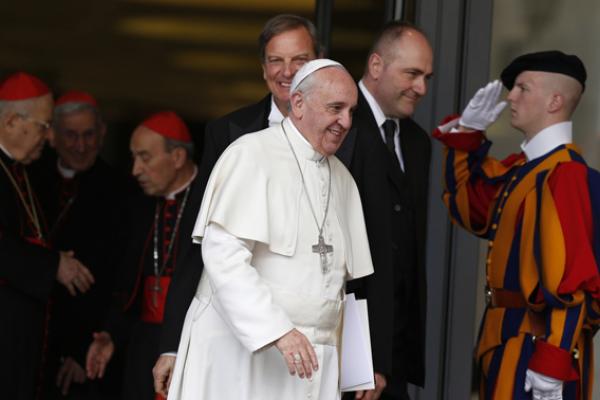And church news is little different: pastor so-and-so is embroiled in a moral failing; church such-and-such fired its pastor over leadership differences; and the seminary down the street let go a professor over theological issues. The list goes on and on.
Isn’t it time for something different?
How about a little good news? What about a viral campaign about churches doing well? Well, here is my modest attempt to say a good word about our church community.
A California resort town, already reeling from a legal fight over the placement of memorial crosses at a minor league baseball stadium, is now engaged in another round of bitter acrimony over the display of crosses on public land.
Not long after, another family appeared at the scene to erect six smaller wooden crosses at the same site. Each bore a handwritten message, including “What if this was your child?”, “To each his own,” and “Get a life.”
In a small college town 20 miles north of Charlotte, N.C., “Homeless Jesus” is provoking more conversation than a month of Sunday sermons.
The hollow, bronze piece bolted to the park bench is a $22,000 gift from a church member intended to support public art.
That’s a small price to pay to get people thinking about what it means to be a Christian — and what it means for “Homeless Jesus” to take up residence in a community of 270 townhomes and single-family homes, said the Rev. David Buck, the rector of St. Alban’s.
Last week during my Sunday school class, one of my second graders asked, “How can we go to heaven, if we continue to sin?”
As usual, I am often stunned and quieted by the striking questions that come from the mouths of young people.
I usually respond to the inquisitive questions from my Sunday School students by reiterating what I have been told by many a Sunday School teacher: “Even though we break our promises, God doesn’t; God promised us if we believe in God and that God’s Son Jesus died for our Sins, we will go to heaven — even when we mess up.”
While that seems like a really ‘simple’ explanation of one of many biblical truths, it is still striking and amazing that even though we continue to ‘mess up,’ God has not retracted on God’s promise of offering us a beautiful ending to the troubled world we live in today.
As I think about Romans 8:21 and how it speaks to the fact that “creation itself will be liberated from its bondage to decay and brought into the freedom and glory of the children of God,” I get excited. Not only because we all will see the glory of God one day, but that the bondage and decay we are experiencing in our physical world will end in Glory!
Last fall, on a Sunday afternoon, as I walked out of the church, a young man tugged on my Franciscan habit. It was Miguel, a member of our Latino choir.
“Father,” he said, “please, pray for the people of my home parish back in El Salvador, especially for one of the priests who has received death threats.”
Startled, I asked: “What is happening there?"
“These priests are organizing against the multinational companies,” he said. “The companies are looking for gold. What will be left for our people? Only poisoned water, a wasteland, and death.”
A few weeks later, I had another similar conversation with a group from Guatemala. Theirs was a similar tale of how indigenous communities were being threatened by mining projects.
As a Catholic and a member of the Franciscan Order, I believe that we are called to “read the signs of the times” and to listen to the cry of the poor and the “groaning” of God’s Creation.
Dear Publix Leadership,
I should begin by saying that I am in almost all ways a big fan of your company. I often shop in a nearby Publix, and shopping there truly is a pleasure. It is clean. The staff are friendly and helpful. The products are good and the prices reasonable.
I'm especially impressed with the way Publix hires people with disabilities.
To provide a needed service and then go above and beyond in seeking to benefit the community — that's a winning combination, and a legacy to be proud of.
That's why I've been so surprised to see Publix (along with Wendy's) refusing (so far) to join the Fair Food Program. And that's why I've been outspoken in my desire to see Publix live up to the ideals of its founder, George Jenkins, who said, “Don’t let making a profit stand in the way of doing the right thing."
Figuring out why Pope Francis has upended so many expectations, how exactly he’s changed the Catholic Church in his first year and what he might be contemplating for the future has become a Catholic parlor game that is almost as popular as the pontiff himself.
A single key can best answer all of these questions: Francis’ longstanding identity as a Jesuit priest.
It’s an all-encompassing personal and professional definition that the former Cardinal Jorge Bergoglio brought with him from Buenos Aires, and one that continues to shape almost everything he does as Pope Francis.
“He may act like a Franciscan but he thinks like a Jesuit,” quipped the Rev. Thomas Reese, a fellow Jesuit who is a columnist for National Catholic Reporter.






